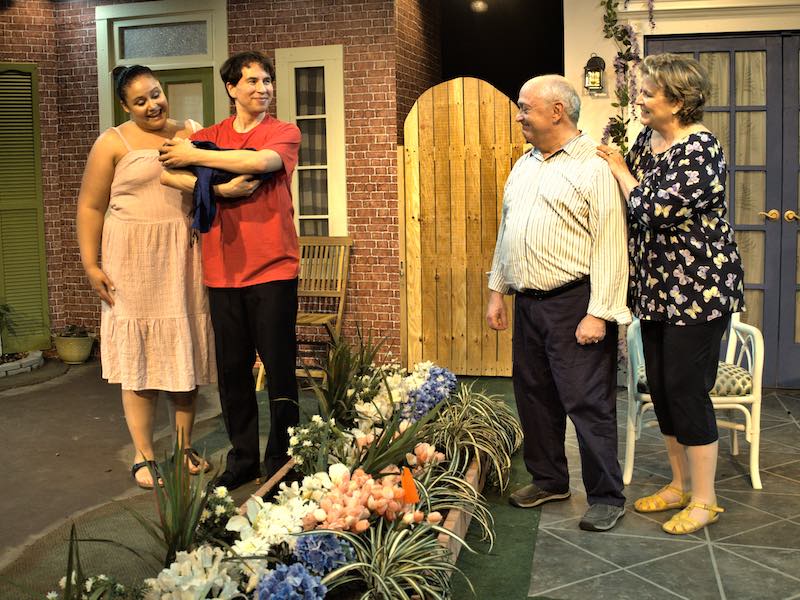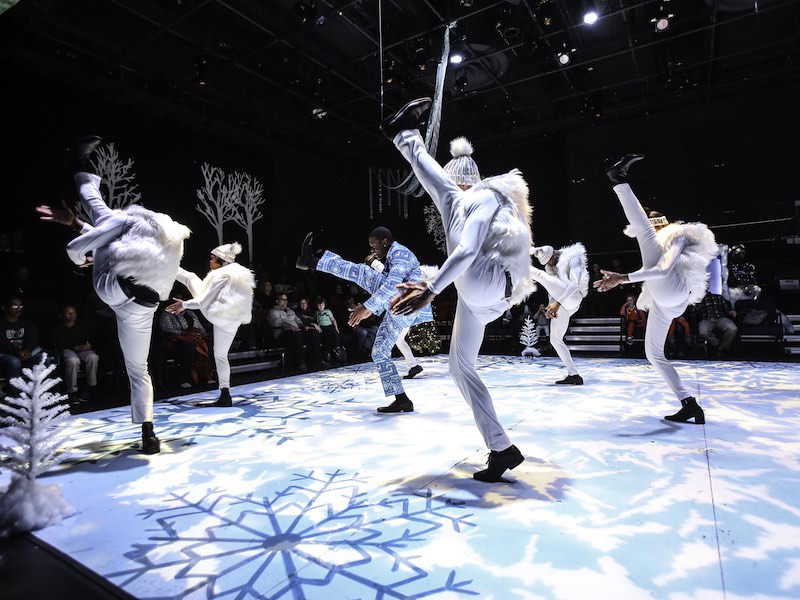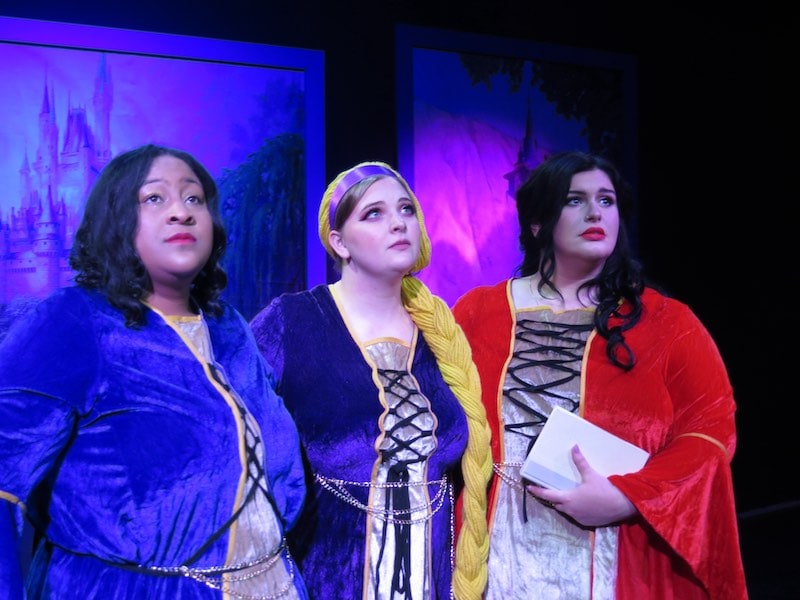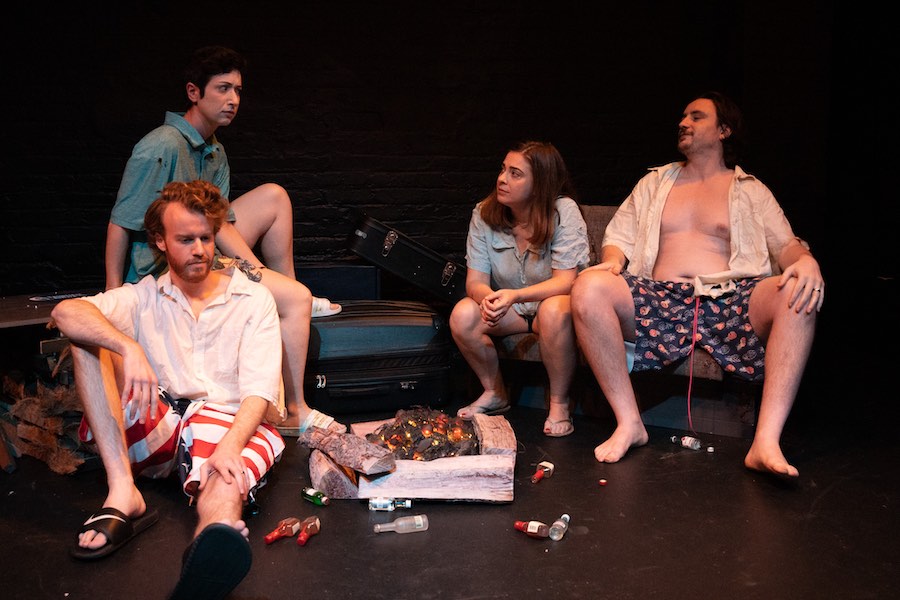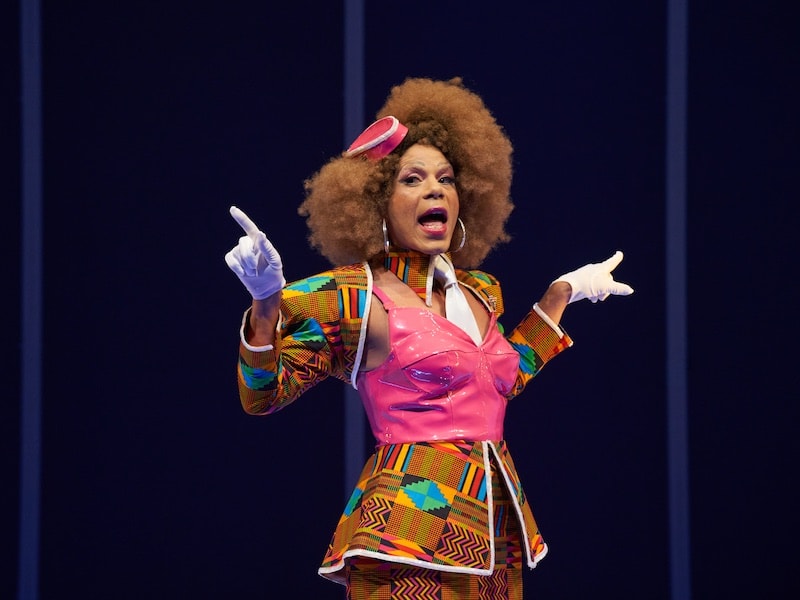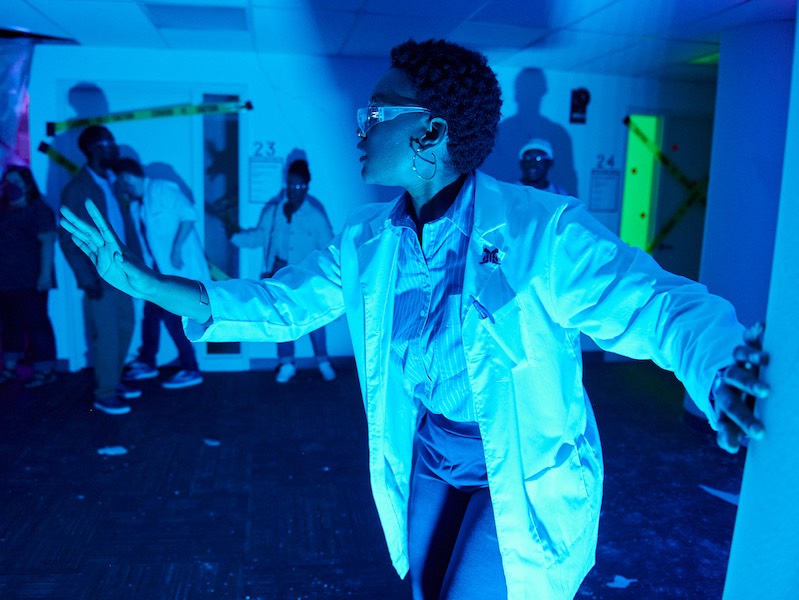By Ajani Jones
This article was first published in DC Theater Arts here.
The late Audrey Hepburn’s assertion that “to plant a garden is to believe in tomorrow” perfectly captures the core thesis of resistance and change explored in GALA Hispanic Theatre’s Jardín salvaje.
Jardín salvaje is a Spanish translation by Gustavo Ott of playwright Karen Zacarías’ Native Gardens, her self-proclaimed “love letter to the DMV.” Like its English counterpart, Jardín salvaje explores the relationships between new and old DMV residents in the interactions between two neighboring families — the Del Valles and the Blochs. As the play progresses, the families navigate their unique dynamics and needs across a shared property line all while fluidly exploring the budding tension between tradition and modernity.
As Pablo (Víctor Salinas) and Tania (Alina Collins Maldonado) del Valle come to terms with their future while settling into their new DC home, the two learn to navigate life through the metaphor of gardening — a journey they must share with their new neighbors Fabio (Juan Luis Acevedo) and Virginia (Luz Nicolás) Bloch.
Under the expert direction of Rebecca Aparicio, the play takes on compelling depth. Each scene, whether humorous, heartfelt, or even notably tense, feels empowered and intentional down to the finest details. Aparicio’s careful direction is evident in minor narrative details, like the shifted national origins of the Bloch family, that foster a compelling story arc for the two families and emphasize the play’s themes of tradition and change.
Under the guidance of this striking directorial foundation, the cast of Jardín salvaje delivers charming and powerful performances both as an ensemble and individually. The two couples balance each other out excellently. The cast’s charisma and shared chemistry are palpable in every scene.
The interactions between Virginia and Tania are especially powerful as the two women portray a genuine sense of empathy that, in spite of the rising tensions between them and their many differences, perfectly encapsulates the sincerity that punctuates the play’s final moments.
Maldonado’s passionate defense of her husband and her home is especially remarkable: as she stands her ground against Nicolás’ equally impassioned and powerful performance, her performance carries a power that leaves the audience in awe.
Jardín salvaje is also genuinely hilarious. The play smoothly integrates humor — from subtle yet poignant remarks to the more blatant yet amusing antics of the construction workers working to renovate the fence marking the property line between the two homes.
GALA’s production of Jardín salvaje elevates the viewing experience by leaning into the inherent musicality and visual appeal of Zacarías’ play. Jardín salvaje is by its nature a sensory experience. In spite of its simple setting, the show is known to maximize the limitations of its set to create a truly breathtaking theater experience. This production is no different. The stunning scenic design by Griselle González and costumes by Jeannette Christensen speak volumes as they complement the characters and their performances.
The integration of musical elements and expert use of lighting also enhance the narrative in subtle yet powerful ways. The sound design by Justin Schmitz and lighting design by Alberto Segarra are outstanding.
This production captures all the heart and narrative soul of Zacarias’ work and dials it up to an eleven through its incredible cast and phenomenal technical elements. In all, GALA Hispanic Theatre’s Jardín salvaje is a must-see.

